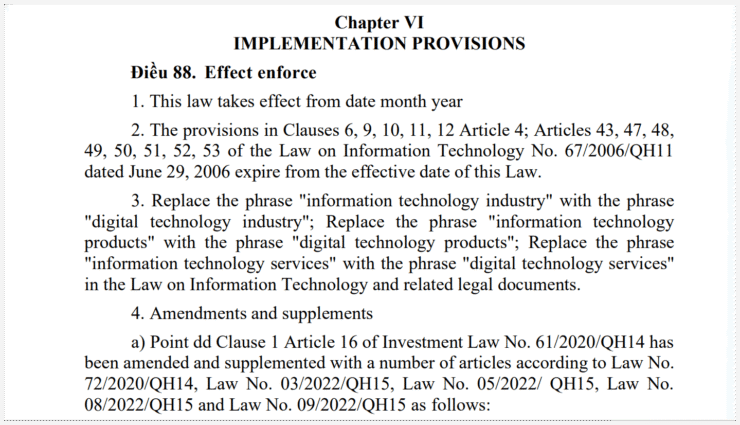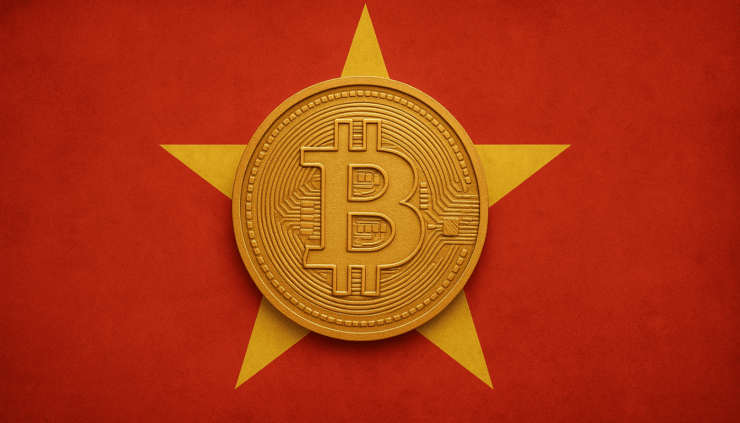Vietnam has officially broken regulatory ground with the passage of a comprehensive law defining digital assets and supercharging its ambitions in artificial intelligence and semiconductor manufacturing. The legislation, passed almost unanimously by the National Assembly, positions the country as one of the first in the world to introduce a standalone legal framework tailored specifically to blockchain-powered digital assets.
With 441 of 445 lawmakers voting in favor, the newly adopted Law on Digital Technology Industry is set to take effect on January 1, 2026. For the first time, Vietnam will recognize digital assets as legally protected property, describing them as products “created, issued, transferred and authenticated using blockchain technology.”

This move directly addresses a long-standing regulatory vacuum that has pushed many of Vietnam’s crypto and Web3 startups to relocate to more favorable jurisdictions like Singapore. Now, backed by a tailored legal system, the country hopes to repatriate that innovation—and the capital that follows it.
Beyond crypto, the law signals a bold national pivot into emerging technologies. It includes aggressive state-backed incentives for the semiconductor and AI sectors, promising a combination of tax relief, infrastructure support, and foreign expert visas to accelerate digital transformation. Together, these steps suggest Vietnam is not merely catching up but positioning itself to lead Southeast Asia’s tech future.
Law Defines Assets, Excludes Securities and Fiat
Vietnam’s landmark digital asset legislation doesn’t just define blockchain-based property—it also outlines three distinct asset categories now covered by law.
According to local reports, digital assets are classified into:
- Virtual assets, used for exchange or investment purposes;
- Crypto assets, authenticated and transferred using encryption technologies;
- Other digital assets, a broad category open to future innovations.
Notably, these classifications exclude securities, fiat-backed tokens, or any digital representations of state-issued currency. Such assets remain under the jurisdiction of existing financial and civil laws.
The framework follows a March directive by Prime Minister Pham Minh Chinh, who tasked the country’s finance authorities with developing digital asset proposals to support Vietnam’s 8% economic growth target. After months of legal ambiguity, the finalized law is being celebrated as a foundational shift.
Despite the previous lack of regulation, Vietnam ranked fifth globally in crypto adoption, according to Chainalysis. Between 2023 and 2024, the country attracted over $105 billion in blockchain-related investment—although much of it flowed through offshore entities. The new legislation is expected to redirect that capital back into the domestic economy.
Vietnam Aims to Become a Tech Superpower
Vietnam’s digital asset law is just one part of a broader national strategy to become a global technology hub. Alongside crypto regulation, the law sets an ambitious goal of hosting 150,000 digital technology enterprises by 2035, supported by wide-ranging government incentives.
To achieve this, the law offers major benefits to firms in semiconductors, artificial intelligence, and digital infrastructure. Eligible companies can access corporate tax rates as low as 10% for up to 15 years, as well as exemptions on import duties and land rentals. The financial package is designed to attract both domestic and foreign tech innovators.
The most generous incentives target large-scale infrastructure projects. Data center investments over $80 million or semiconductor plants exceeding $160 million qualify for “special” benefits, including five-year personal income tax waivers for foreign experts.
Vietnam is transparent about its ambitions. The law explicitly identifies semiconductor development as a strategic priority, stating the goal is to “gradually become an essential link in the global supply chain.” As global markets seek diversified chip production routes, Vietnam’s timing is strategic.
Quick Facts
- Vietnam’s new digital asset law classifies virtual, crypto, and other blockchain-based assets while excluding fiat tokens and securities from its scope.
- The law will take effect on January 1, 2026, marking Vietnam’s first fully independent legal framework for Web3 innovation.
- More than $105 billion in blockchain investment entered Vietnam in 2023–24, with much of it routed offshore due to the prior lack of regulation.
- The law also introduces aggressive tax breaks and infrastructure support for AI and chip companies, aiming to reach 150,000 tech firms by 2035.





